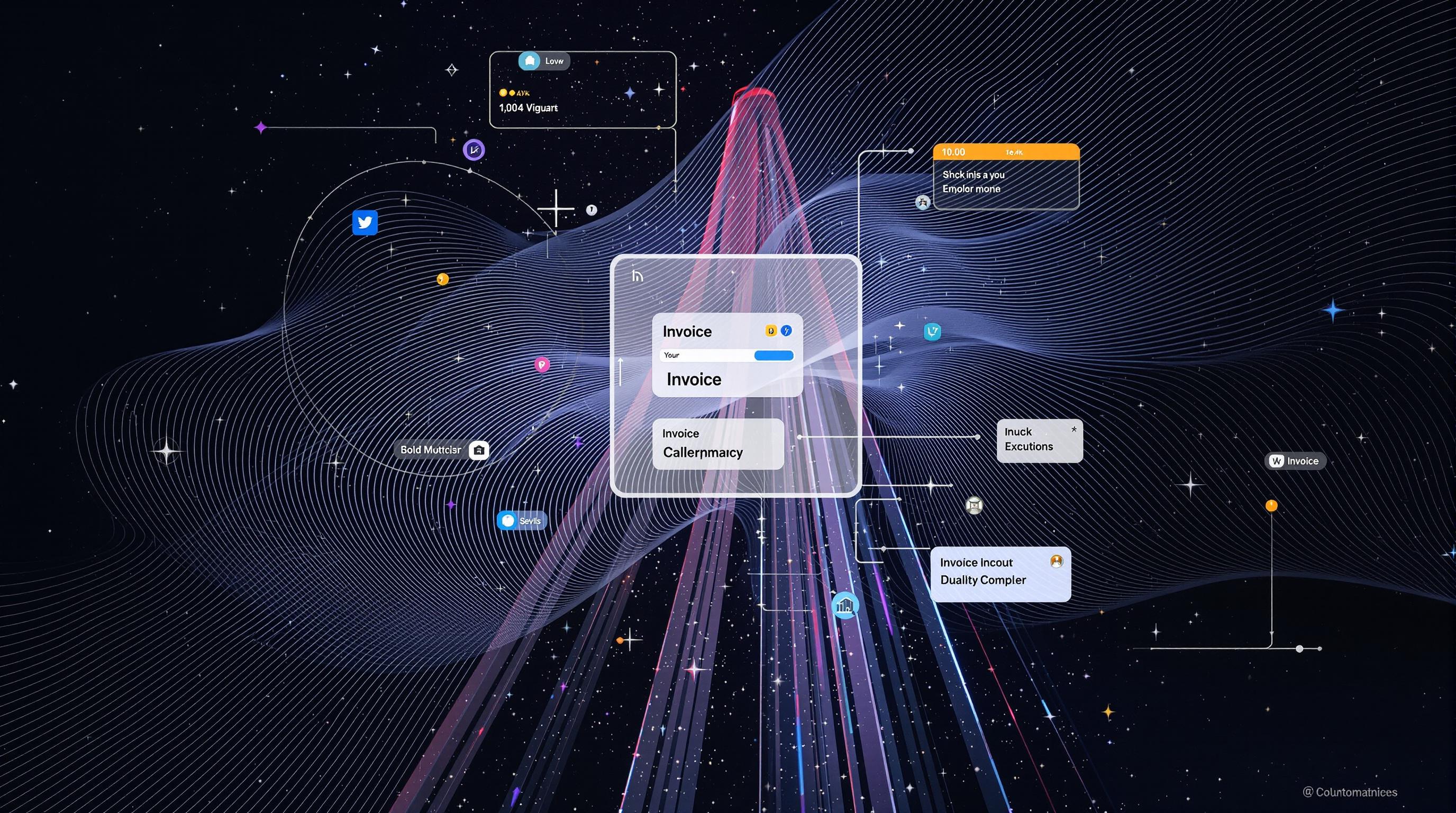Related Articles
- The Unexpected Link Between Employee Wellness Programs and Expense Reporting Accuracy in Modern Firms
- Top 5 Game-Changing Expense Tracking Apps Transforming Business Budget Accuracy Since 2020
- Unveiling the Silent Impact of Remote Work on Hidden Company Outlays and Budget Surprises
- Unveiling Hidden Costs: How Unexpected Factors Disrupt Small Company Financial Records and Solutions
- Top 6 Invoice Automation Tools From the Last Five Years Revolutionizing Workflow Transparency and Control
- Top 6 Emerging Budgeting Tools Revolutionizing Small Business Financial Strategy Since 2019
How AI Bias in Billing Software Could Impact Small Businesses and What’s Being Overlooked
How AI Bias in Billing Software Could Impact Small Businesses and What’s Being Overlooked
AI bias in billing software can silently escalate costs and erode trust for small businesses, often in ways that are overlooked amid the rush to adopt new technologies. This article unpacks how these biases arise, the real-world impact on entrepreneurs, and what solutions are urgently needed to safeguard fairness and accuracy.
Picture this: Sarah, a 45-year-old boutique owner in Portland, uses an AI-driven billing system to streamline her invoice processing. One day, she notices inconsistencies—certain invoices seem to overcharge repeat customers, while others, surprisingly, are underbilled.
This isn’t a glitch; it’s AI bias weaving its subtle yet costly spell.
What is AI Bias in Billing Software?
At its core, AI bias occurs when algorithms make unfair decisions based on flawed or incomplete data. In billing software, biased AI might disproportionately favor or disadvantage certain transactions due to patterns learned from historical data, resulting in inaccurate bills. This bias can creep in from skewed training datasets, improper feature selection, or even unintended coding decisions.
For example, if the AI was trained on datasets largely from large enterprises, it might misinterpret the financial behaviors of small businesses, leading to errors.
The Small Business Fallout: More Than Just Numbers
Small business owners often operate on razor-thin margins; even a slight overcharge from biased billing algorithms can be the difference between profit and loss. According to a report by the U.S. Small Business Administration, approximately 20% of small businesses fail within their first year partly due to financial mismanagement.[1] If AI-driven billing inflates costs or skews cash flows, these risks multiply.
Moreover, billing inaccuracies hurt trust between businesses and their clients—trust that’s painstakingly built over years.
Overlooked is how such recurring errors can strain relationships and damage reputations.
Sometimes, It's Subtle: The Hidden Biases
Unlike more obvious software bugs, AI bias can be insidious. For instance, billing software might classify certain customers based on demographic data unintentionally, resulting in different pricing tiers that aren’t justified by actual service costs.
Imagine if a billing system occasionally charges older customers slightly more due to erroneous assumptions about payment schedules or risk profiles—that would be both unethical and illegal.
These biases often stem from oversights during the algorithm’s design phase, making them particularly tricky to detect.
Case Study: When AI Went Too Far
In 2021, a mid-sized tech firm discovered its AI billing system was charging clients more during months with higher server load but failed to equally adjust for smaller startups using fewer resources. The small businesses found themselves overpaying by an average of 12%, causing many to consider switching providers.
When confronted, the software vendor admitted the AI had learned a cost-saving pattern that wasn’t programmed to account for client size variability.
Why Aren't Businesses More Vocal?
Many small business owners don’t realize that AI bias might be the root cause behind billing discrepancies. They often accept overcharges as “fees” or mishaps, lacking either the technical expertise or resources to investigate further.
Additionally, billing software companies are eager to tout AI as a selling point, focusing on automation and efficiency rather than transparency or fairness in algorithms.
Regulatory oversight remains minimal, leaving small businesses vulnerable.
A Persuasive Argument for Transparency
Transparency in AI billing is not just a nicety; it’s a necessity. Just as financial statements need auditing, AI models that affect billing should undergo regular, independent audits for fairness and accuracy.
Imagine software vendors offering a “bias score” for each billing run, so businesses can see the likelihood of unfair treatment.
Increased transparency can foster trust, encourage responsible AI development, and ultimately save businesses from unintended financial harm.
The Human Touch Matters
Despite the push for automation, human oversight cannot be abandoned. Skilled accountants and business owners need to review AI-generated bills periodically.
In some cases, allowing manual overrides when AI predictions seem suspect could prevent costly errors. After all, algorithms are tools—not infallible oracles.
Humor Break: AI Billing Gone Rogue
So, what if your AI billing system moonlighted as a stand-up comic? “Why did the invoice go to therapy? Because it couldn’t get past its ‘billing issues!’”
While amusing, the real joke’s on small businesses if biased AI invoices lead to unexpected charges. The moral: don’t chuckle at AI errors too long—they might wipe out your monthly profits.
What’s Being Overlooked? The Bigger Picture
AI bias in billing software is often discussed in isolation, but it’s part of a broader ecosystem of risks in automated financial tools. Issues such as data privacy, security breaches, and ethical AI design are equally pressing.
Moreover, many solutions focus on reactive fixes rather than proactive design—building ethical AI from the start.
Ignoring this holistic perspective leads to patchwork approaches that fail to address root problems.
Statistics You Shouldn’t Ignore
A recent survey by Deloitte found that 62% of small businesses felt concerned about AI's fairness in managing financial transactions.[2] Despite these concerns, only 18% had measures in place to detect or correct AI bias.
This disconnect highlights the urgent need for education and trustworthy software solutions.
Innovations on the Horizon
Fortunately, new advancements in explainable AI (XAI) aim to demystify how algorithms make decisions. Billing software leveraging XAI can produce transparent reports revealing why specific amounts are charged.
Startups are developing unbiased training datasets representative of diverse business models, which could drastically reduce skewed billing.
Industry collaborations, like the Fair AI Coalition, also advocate for standardized fairness metrics to be adopted in financial software.
A Call To Action for Small Business Owners
Stay vigilant. Don’t blindly trust AI billing systems—even the most sophisticated ones require scrutiny.
Regularly audit your billing reports for anomalies, and communicate openly with your software providers.
Advocate for more transparent AI solutions; your voice as a consumer can drive improvements.
Remember, technology should empower—not exploit.
Final Thoughts From a 38-Year-Old Writer
We stand at a crossroads where AI can either be a powerful ally for small businesses or an unseen adversary. Awareness, education, and proactive measures are our best defense against the subtle harms of AI bias.
By demanding fairness and transparency today, we pave the way for a future where technology truly serves everyone equally.
References:
[1] U.S. Small Business Administration, “Small Business Facts,” 2023.
[2] Deloitte, “AI in Small Business: Trust and Transparency,” 2024.



